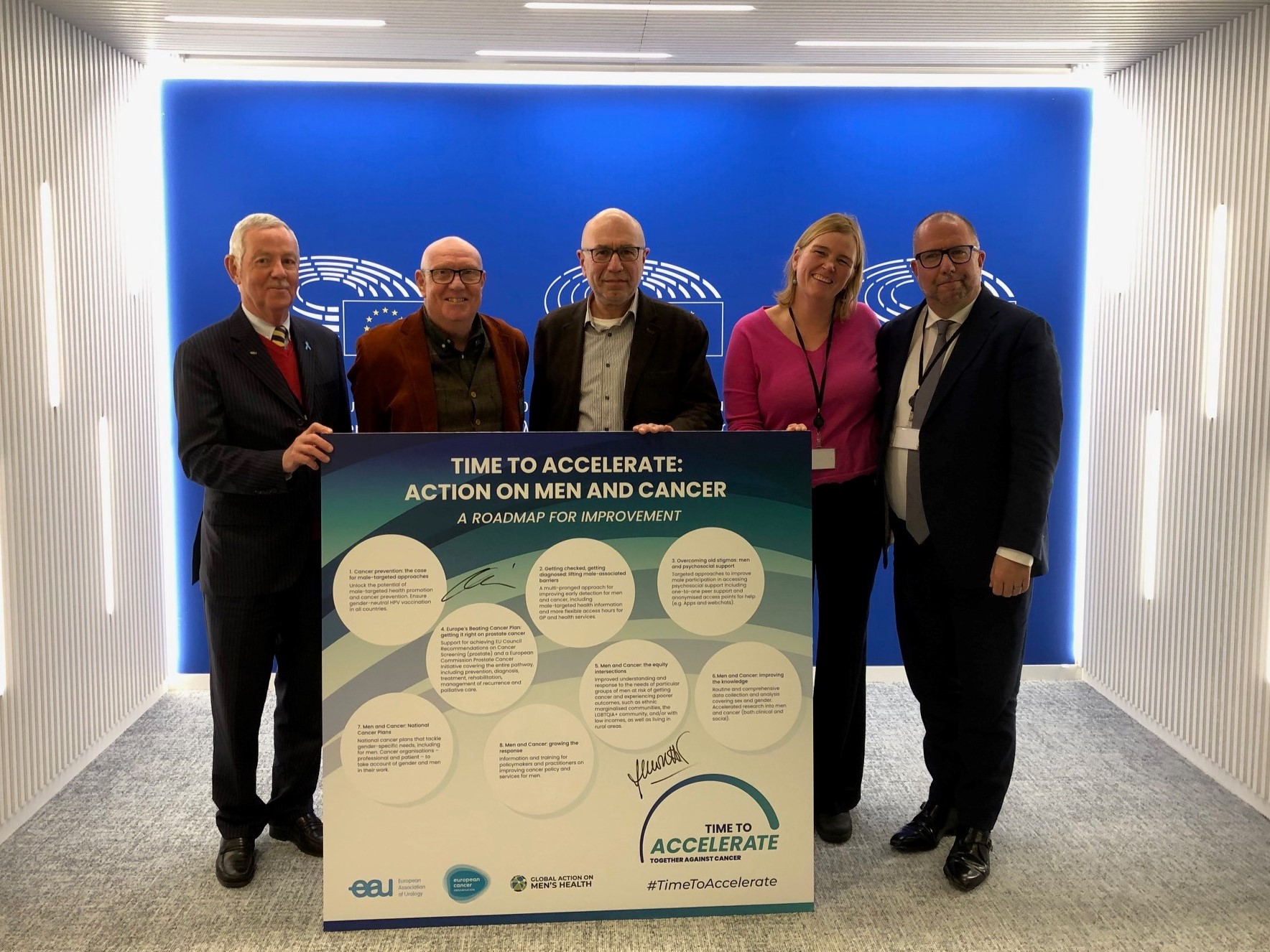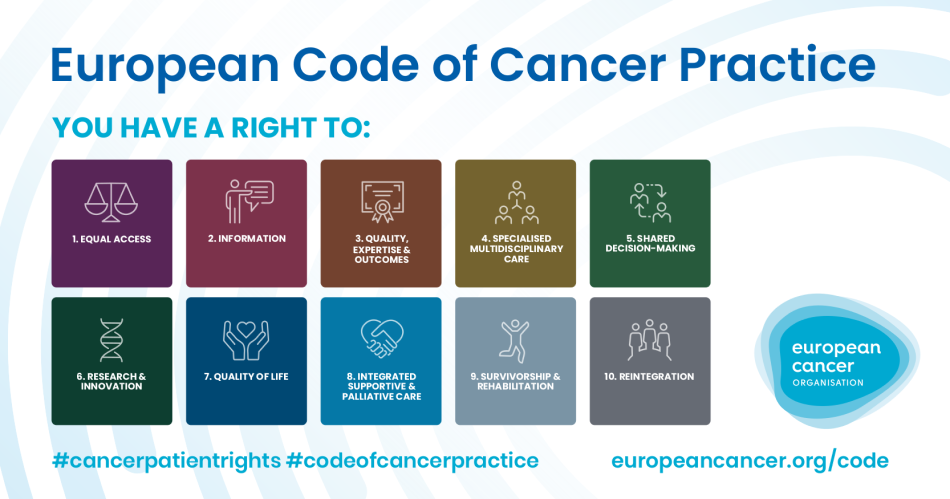Inequalities Network
Contact the NetworkThis network helps unite the cancer community to tackle disparities in cancer care across Europe. Through new tools like the European Cancer Pulse – and events like the annual European Cancer Summit – it highlights gaps and drives action to ensure fair outcomes for all.
The Inequalities Network is presently focused on:
- Advocating for the reduction disparities in cancer outcomes between member states, regions, and social groups across Europe;
- Promoting and supporting the use of the European Cancer Pulse, ECO’s platform for monitoring cancer inequalities, to track progress inform and guide policymakers;
- Addressing gender-related inequities through targeted advocacy on women and men cancers;
- Promoting inclusive cancer care for the LGBTIQ community, advancing research, and informing policy;
- Supporting implementation of the European Code of Cancer Practice to guarantee patients’ rights, including access to optimal care;
- Advocating for health to be recognised as a central pillar of EU inequality agendas, including in the upcoming Gender Equality; Strategy for 2026-2030, Anti-Racism Strategy for 2026-2030 and LGBTIQ Equality Strategy for 2026-2030.
European Cancer Summit: Watch the 2025 Inequalities Session - Breaking Barriers: Confronting Bias, Seen and Unseen, in Cancer Care
Workstreams
Women and Cancer
Every year more than 1.2 million women are diagnosed with cancer in the European Union, with nearly 600,000 losing their lives. As of now, the European Cancer Information System (ECIS) reports that 12 million women in Europe are living with cancer.
The Women and Cancer workstream looks to address the unique inequities faced by women who experience a cancer diagnosis, women working in the cancer sector, and women who provide care to persons with cancer.
Men and Cancer
 |
There is an urgent need for action on all gender-related cancer inequalities, yet the issue of men’s cancers is not being addressed effectively by policymakers. The Men and Cancer workstream addresses this gap by raising awareness and driving policy action.
Moreover, ECO, The European Association of Urology (EAU) and Global Action on Men’s Health (GAMH) launched a joint Roadmap for Improvement on this issue: ‘Time to Accelerate: Action on Men and Cancer’.
LGBTIQ
The LGBTIQ community faces distinct inequities in cancer prevention, diagnosis, and care. Higher exposure to risk factors, combined with discrimination, inadequate policies, and limited awareness, results in barriers to accessing quality healthcare across Europe.
The LGBTIQ workstream brings together experts to address these challenges, advance research, and promote inclusive policies that improve cancer outcomes.
Additional Activities
The many reports and responses from this network include:
- The European Cancer Roadmap to 2030 ‘Time to Accelerate: Together Against Cancer’
- ECO’s response to the European Commission Consultation on Disability and Parking Cards
- ECO’s Action Report: It Can Be Done – Beating Inequalities in Cancer Care
- Implementing the European Code of Cancer Practice in rural settingsImplementing the European Code of Cancer Practice in rural settings
Promoting Key Rights of Cancer Patients and Survivors
This network is aligned with the European Code of Cancer Practice, produced by a team of cancer patients, patient advocates and cancer professionals, and launched in October 2020. It sets out a series of 10 key overarching rights, and in particular signposts what patients should expect from their health system to achieve the best possible outcomes.
For instance, all cancer patients have a right to equal access to affordable and optimal cancer care, including the right to a second opinion.
 |
Background
A core objective of Europe’s Beating Cancer Plan is to reduce cancer inequalities across Europe, as differences in cancer survival can still exceed 30% between certain countries. Such levels of disparity between countries and regions concerning cancer prevention, control, access to treatment and survival can no longer be ignored.
Inequalities also occur within countries and among social groups, with particular impacts on marginalised communities and vulnerable groups.
The Network on Inequalities, led by Co-Chairs Nicolò Matteo Luca Battisti and Sarah Collen, fosters collaboration of all relevant stakeholders to better understand all drivers of cancer inequalities and achieve concrete actions to address them.
Our Inequalities Network dedicates itself to driving consensus, presenting policy recommendations and solutions, and sharing best practices concerning cancer inequalities due to:
- geographical differences between countries and regions across Europe;
- social determinants, including socioeconomic status, gender, age, ethnicity, sexuality and identity and belonging to marginalised communities or vulnerable groups.
Prominent current workstreams within the network focus on disparities relating to gender, the LGBTIQ community and ethnicity.



